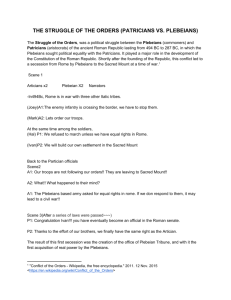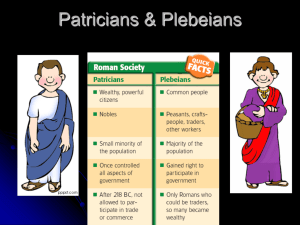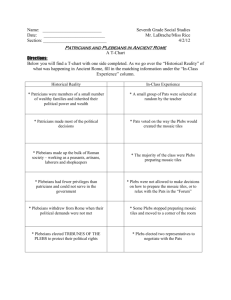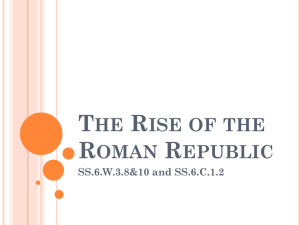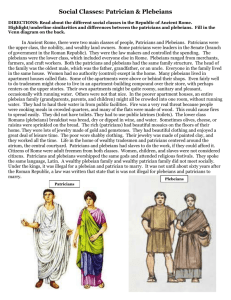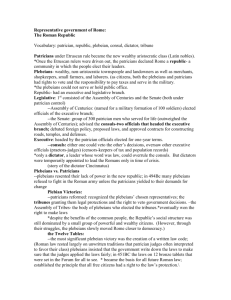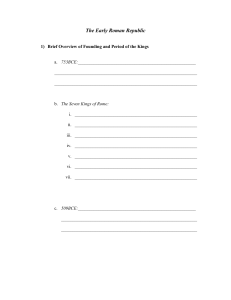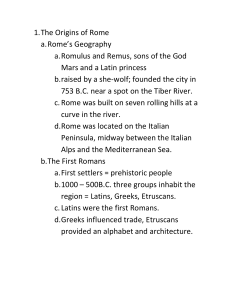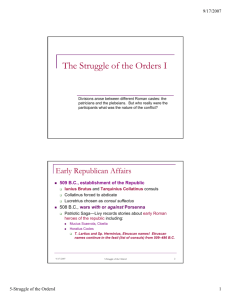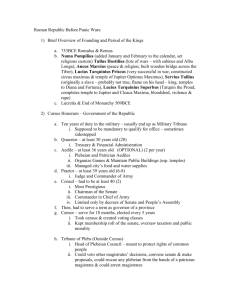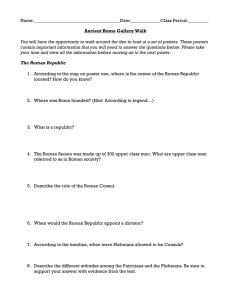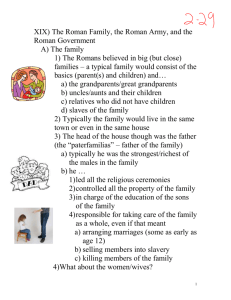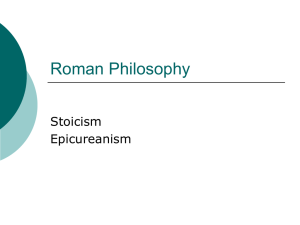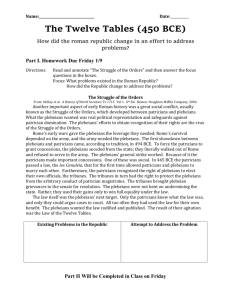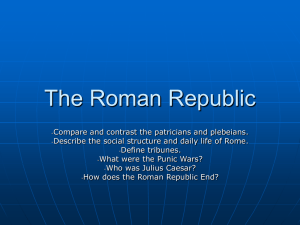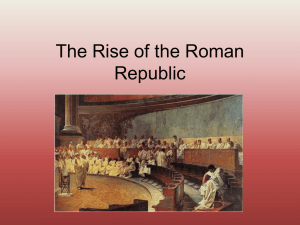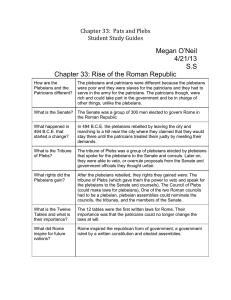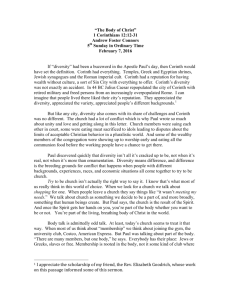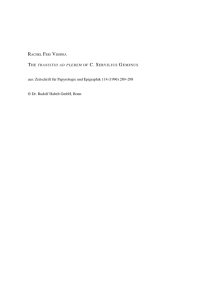Conflict of the Orders
advertisement
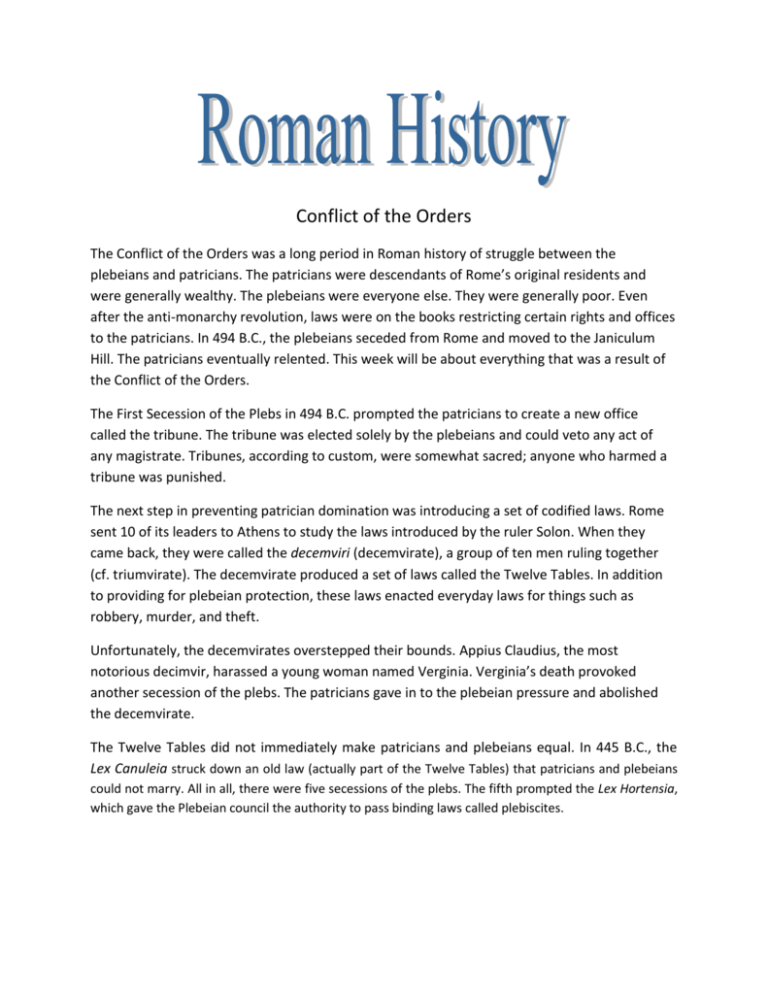
Conflict of the Orders The Conflict of the Orders was a long period in Roman history of struggle between the plebeians and patricians. The patricians were descendants of Rome’s original residents and were generally wealthy. The plebeians were everyone else. They were generally poor. Even after the anti-monarchy revolution, laws were on the books restricting certain rights and offices to the patricians. In 494 B.C., the plebeians seceded from Rome and moved to the Janiculum Hill. The patricians eventually relented. This week will be about everything that was a result of the Conflict of the Orders. The First Secession of the Plebs in 494 B.C. prompted the patricians to create a new office called the tribune. The tribune was elected solely by the plebeians and could veto any act of any magistrate. Tribunes, according to custom, were somewhat sacred; anyone who harmed a tribune was punished. The next step in preventing patrician domination was introducing a set of codified laws. Rome sent 10 of its leaders to Athens to study the laws introduced by the ruler Solon. When they came back, they were called the decemviri (decemvirate), a group of ten men ruling together (cf. triumvirate). The decemvirate produced a set of laws called the Twelve Tables. In addition to providing for plebeian protection, these laws enacted everyday laws for things such as robbery, murder, and theft. Unfortunately, the decemvirates overstepped their bounds. Appius Claudius, the most notorious decimvir, harassed a young woman named Verginia. Verginia’s death provoked another secession of the plebs. The patricians gave in to the plebeian pressure and abolished the decemvirate. The Twelve Tables did not immediately make patricians and plebeians equal. In 445 B.C., the Lex Canuleia struck down an old law (actually part of the Twelve Tables) that patricians and plebeians could not marry. All in all, there were five secessions of the plebs. The fifth prompted the Lex Hortensia, which gave the Plebeian council the authority to pass binding laws called plebiscites.
